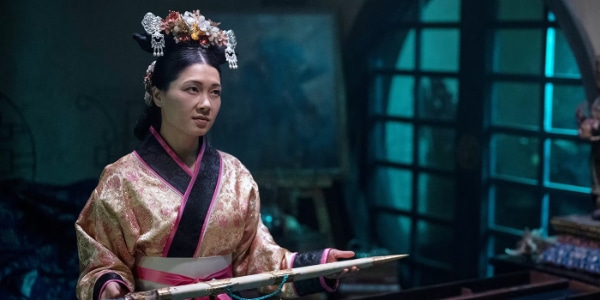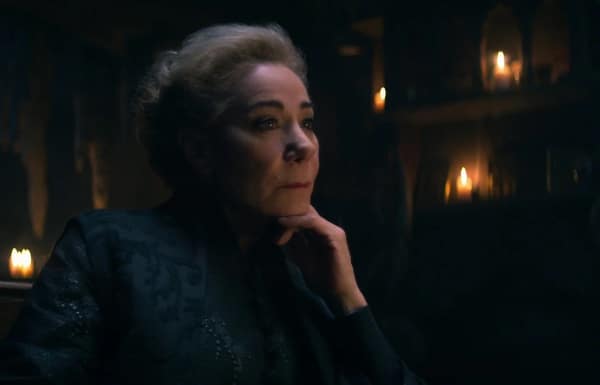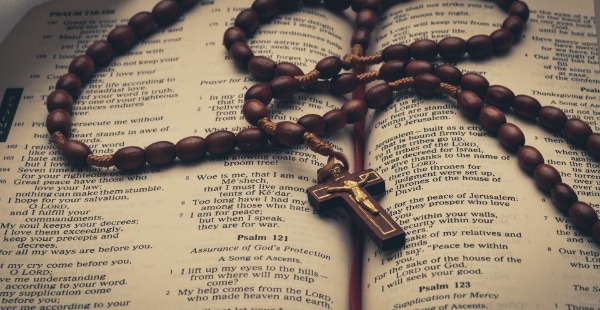This article contains spoilers for Season Two
Shadow and Bone Season Two bursts with complex characters with complex relationships, but there is one theme running through nearly all of them: in this deeply wounded and dangerous society, vulnerability can get you hurt, betrayed, or killed. Even so, many characters refuse to be vulnerable with others and as a result, they cannot be healed.
Jesper (Kit Young) desperately tries to hide his abilities as a Durast; Kaz (Freddy Carter) guards against the torment that comes with self-disclosure or physical touch; the Darkling (Ben Barnes) obsesses over protecting his power because it’s become his identity; Alina (Jessie Mei Li) refuses to feel the loss of her childhood love and uses merzost instead.
All of them refuse to embrace vulnerability, accepting the possibility of more pain. In doing so, none of them can experience the healing of the pain they already have.
In a powerful scene that illustrates the healing vulnerability can bring, Jesper and Kaz try to steal the Sword of Neshyener. They are confronted by a formidable opponent they believe to be the sword’s original thief, called the disciple. As they strive in vain to subdue her to obtain the sword, Kaz discovers her weakness – a feeble and aging man kept safely in the back of the house. Kaz threatens to kill him to get the disciple to hand over the sword.
But Kaz and his band were in for a shock.

They discover that the formidable woman warrior they’d been fighting (and losing to) was not the sword’s thief but its legendary Grisha maker, Sankta Neyar, who had lived for hundreds of years. They also learn that she did not consider her love for this regular man, who would age and die long before her, as a weakness. Rather, Kaz and company realize that the same love which made her vulnerable to threats and coercion was precisely what brought her life meaning and joy. Even more surprisingly, they see her willingness to face the pain of loss she knew would come in order to live with him in love and joy for the time they did have together.
She teaches them very straightforwardly that cutting oneself off from others to avoid pain does nothing for one’s life, but rather “is a small way to live.”
She’s right.
When we have an injury, a physician can do nothing for us if we aren’t willing to let them see, examine, and test the wound even though that often brings more pain. A throat swab may cause gagging, rebreaking a bone is excruciating, and yet openness to that pain brings healing, health, wholeness, and the ability to live a more free and abundant life.
Vulnerability inherently comes with risk and pain. We see this in the relationship between Alina and Mal (Archie Renaux). As they become more intimate with one another, their vulnerability increases with the possibility of losing each other. We see vulnerability in the Darkling. In both instances that he let people close (Alina and Baghra (Zoë Wanamaker)), he was physically injured by those he wanted to trust. We see it with Jesper, as each time a friend challenges him to accept and celebrate his Durast abilities, he is forced to contend with difficult memories of his past. We see it in Kaz, when removing his glove results in a massive flashback panic attack, reducing him to a completely helpless mess in the middle of an important job.

Yet, Season Two also gives us examples of characters who courageously risk vulnerability in order to love well. Mal is willing to lay down his life to protect Alina, an act of pure love that saves not only her life but those of a nation. Jesper, with the encouragement of his friends and his mother, is finally able to own his abilities as a Durast in a way that allows him the freedom to use them to protect his friends more effectively. Baghra risks her own physical safety to stop her son from committing more travesties. Genya (Daisy Head) allows David (Luke Pasqualino) to see her scarred face thus enabling her to see herself as he sees her. For all of these, the courage to be vulnerable with another led them to both finding their own peace and to the healing of others. Whereas those who were unable to bear the pain of vulnerability in loving were all left with greater loss, emptiness and woundedness than when they had begun.

In our own lives, choosing to love and opening ourselves to vulnerability can seem like folly. This is ‘the folly of the Cross.’ In First Corinthians, Paul points to the crucified Savior, Jesus, and acknowledges how crazy that kind of love may seem to us when he says:
“Has not God made foolish the wisdom of the world? For since, in the wisdom of God, the world did not know God through wisdom, God decided, through the foolishness of the proclamation, to save those who believe. For Jews ask for signs and Greeks desire wisdom, but we proclaim Christ crucified, a stumbling block to Jews and foolishness to gentiles, but to those who are the called, both Jews and Greeks, Christ the power of God and the wisdom of God. For God’s foolishness is wiser than human wisdom, and God’s weakness is stronger than human strength.” (1 Cor. 1:20-25)
Jesus had plenty of moments when he could have ignored troublesome people, fought off his accusers, and spared himself the pain of the crucifixion. Yet he never sought a way out. Why? Because he did not come to fight us off, but to draw us close. He came to heal the wounds of our broken covenant with God. He came to save us from death. He came that we might have life, and have it to the full (see John 10:10).

Jesus teaches us how to love vulnerably, in a way that truly allows us to be healed and to thrive.
Fear of pain is very real. Sometimes fear is an important instinct that can protect us from doing foolish things or pursuing toxic relationships but it may also be something that prompts us to put up defensive walls that block true intimacy. We try to avoid the pain that inevitably comes with close relationships, and, thereby, forgo the joy, peace, and fulfillment that comes from them as well.
Jesus knows what that fear feels like. When he sweat blood in the Garden of Gethsemane, he was experiencing extreme stress knowing everything that was coming but he loved us so radically that he was willing to face the pain that his vulnerable love would exposed him to for the sake of the joy that it would ultimately bring (see Hebrews 12:2).
When we fall into the same temptations as Alina and the Darkling, unwilling to risk loving and losing; as Kaz, unwilling to experience weakness to pursue healing; as Jesper, irritably shutting down anyone who noticed a part of himself he wasn’t at peace with; or any other struggle with healthy vulnerability, we have but to look to the Cross. There we are presented with a foolishness wiser than our own wisdom and a weakness stronger than our own strength. There we see and experience a love that heals and brings life, a love that is everything.

When we need the courage to be vulnerable, to love someone we are losing, to go to a doctor for help, to share something humiliating with a friend, or to be honest with God about something we don’t want to face, we can ask Jesus for courage. If we aren’t sure how to ask for that, we can start by praying the Sorrowful Mysteries of the Rosary, leaning on Christ’s courage to remain vulnerable through the Agony in the Garden, the Scourging at the Pillar, the Crowning with Thorns, the Carrying of the Cross, and the Crucifixion and Death of Jesus, trusting that through everything he will bring us healing, life, and joy beyond what we could ever imagine.
You can find a guide to praying the Sorrowful Mysteries of the Rosary here.
Shadow and Bone, Season 2 is available for streaming on Netflix.


